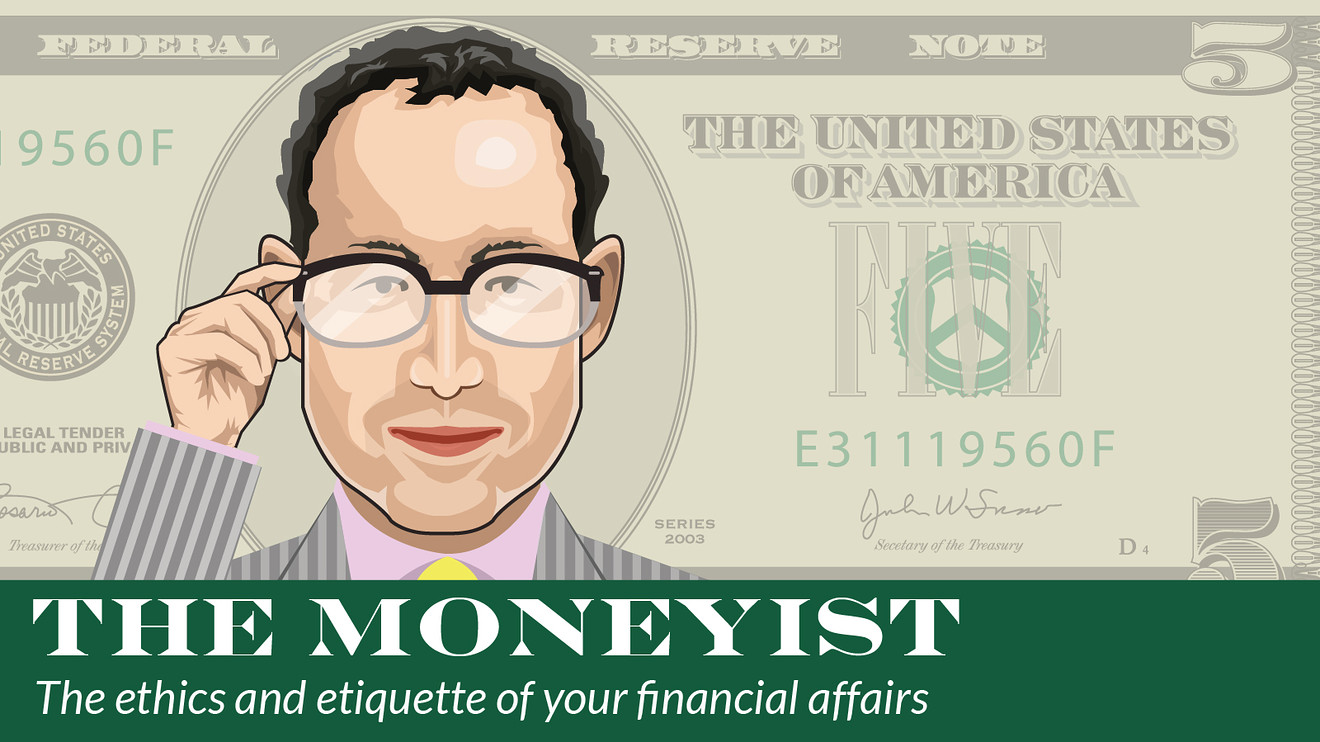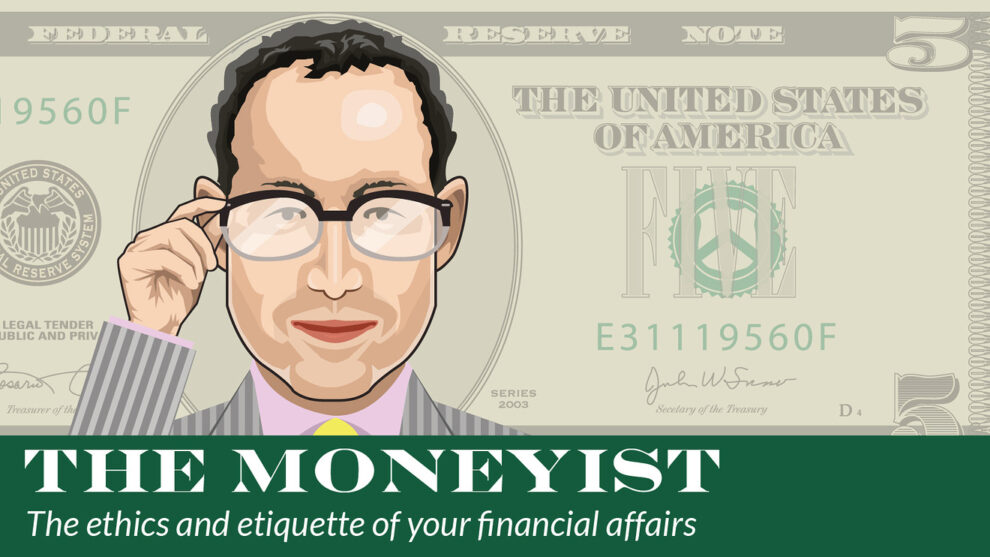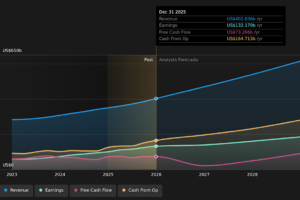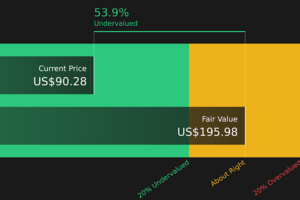
Dear Moneyist,
Growing up, I was quite close to my paternal grandparents. They were very active in my life.
While they were living, they frequently disagreed with my dad’s financial decisions, and felt my uncle, my dad’s brother, did well for himself, and, therefore, did not need any money. So they repeatedly told all grandchildren, including me, that their estate would be divided among us, the grandchildren.
My grandparents were transparent with regards to their finances, and even told us where they kept their will. When my grandparents finally passed away, my uncle was named the executor, and finally read the will. Their will specified that everything would be split between my dad and my uncle, contrary to what they told all of us growing up. Naturally, that came as a great disappointment to us.
My uncle, with his half, decided to honor the spirit of what my grandparents said over these years, and decided to give each of his children some money. He tried to convince my dad to do the same with his half. My dad refused.
Lean to master your money:Sign up for MarketWatch’s FREE live series to boost your financial IQ
My dad took to Facebook, telling people of his newly-found wealth, and bragging about his supposed investing prowess when he did not earn that money himself.
My grandparents were frugal, and worked for that money. Additionally, my grandparents financially supported my dad as I was growing up.
My dad would go on, and share the various ways he helped my sister and me financially — only, that it is a lie. It is all quite embarrassing. Everything in my adult life I worked for. My dad did not pay for, or support me throughout college.
He got remarried, and has done more to support his wife’s children who my grandparents never met. He went against my uncle’s advice, and never signed a prenuptial agreement, and is in poor health. It is very likely that my sister and I will never see a penny of our grandparents’ money.
He has even told me that he has no obligations to me, his daughter, and we were on non-speaking terms for two years.
I never asked my dad for money until more recently when I started a new chapter of my life and wanted a loan to bolster a down payment. He went ballistic that I even asked — never mind that I asked him a year in advance of the planned house purchase.
For additional context, a few years ago, I was in a position to buy a property, and my grandparents said they would help, but then later had to withdraw the offer due to market downturn.
My relationship with my dad has soured to where I find it difficult to talk with him. My father lives in his own world where he believes what he wants to believe, and he has an adoring group of people who admires his supposed investing prowess, and his financial generosity towards his family. He is not the type of person who would agree to going to counseling.
It makes me sad what our family has become.
The only way I could see things changing is by starting with the truth. I would like my dad back, but I am afraid he is too far gone.
Any ideas?
Loving Daughter
Want to read more?Follow Quentin Fottrell on Twitterand read more of his columns here.
Dear Daughter,
Separate your relationship with your father from your financial needs and wants. If you want him in your life in a way that suits you both, while maintaining healthy boundaries, be sure of your own motivations first and foremost. Mixing up your emotional needs and wants with your financial needs and wants will quickly rust the wheels of this relationship. In fact, you may need a new set of training wheels. It might be possible to sustain a relationship with this man in a way that is healthy for you, but it may not be the kind of relationship you had hoped for 5, 10 or even 20 years ago.
Don’t expect him to change. If you reconnect with your father, and you give time out of your life for him and vice-versa, maintain realistic expectations. Sometimes, when we repair a broken relationship, we believe it will be the kind of happy, nourishing experience we had always dreamed it would be, but then we slowly realize that the reasons it broke down are still present, and the reasons two people don’t quite click are also still there. Furthermore, if he is not capable of being honest with himself or others on or off social media, he will find it difficult to be honest with you.
Any requests for money are a trigger for him. Whatever buttons you inadvertently pushed when you asked him for financial help will get pushed again. Who knows why? Maybe they triggered insecurities or resentments he harbors about his first wife and/or first family. Inadvertently or not, it sounds like your grandparents used money to ensure that you would remain engaged with them throughout your life. But remember that your father is their child. Don’t allow history to repeat itself. The financial co-dependency ends here. By all means, tell him how you feel. It may not be enough.
Your dad may or may not be organized enough (or, indeed, embittered enough) to leave a will and exclude his children from his first marriage. If there is no will? You will receive a percentage of his estate along with his second wife, according to intestate laws of his state. Whatever happens, try not to take it personally. It’s difficult at the best of times, but your father’s antipathy toward you in all likelihood has absolutely nothing to do with you at all. It’s much more likely that his antipathy is related to how you and your siblings make him feel about himself. You can’t control that.
What does it all mean? Take care of yourself first and foremost. Be good to yourself because you can’t count on others being good to you.
Tread carefully and, remember, if at any time this relationship makes you unhappy or causes you grief or stress, it’s OK to walk away.
Hello there, MarketWatchers. Check out the Moneyist private Facebook FB, +1.45% group where we look for answers to life’s thorniest money issues. Readers write in to me with all sorts of dilemmas.
Quentin Fottrell is MarketWatch’s Moneyist columnist. You can email The Moneyist with any financial and ethical questions at [email protected]. By emailing your questions, you agree to having them published anonymously on MarketWatch.












